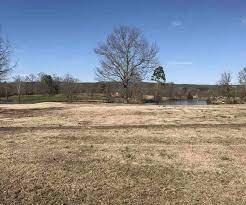Are you considering investing in land in Arkansas? Whether you’re looking for a place to build your dream home, start a farm, or simply add to your investment portfolio Arkansas Land Buyers, Arkansas offers a diverse range of opportunities for land buyers. However, purchasing land can be a complex process, especially if you’re unfamiliar with the local market and regulations. To help you navigate through this journey, we’ve put together the ultimate guide to buying land in Arkansas.
Understanding the Arkansas Land Market
Before diving into the buying process, it’s essential to understand the state’s land market. Arkansas boasts a rich natural landscape, including mountains, forests, rivers, and fertile plains. This diversity means that there are various types of land available for purchase, each with its own unique features and potential uses.
Whether you’re interested in recreational land for hunting and fishing, agricultural land for farming, or residential land for building a home, Arkansas has options to suit your needs. Additionally, factors such as location, accessibility, zoning regulations, and proximity to amenities can influence the value and suitability of a piece of land.
Identifying Your Needs and Budget
The first step in buying land in Arkansas is to identify your needs and budget. Consider what you intend to use the land for and any specific requirements you may have. Are you looking for a secluded retreat in the Ozark Mountains, or do you prefer a parcel of land closer to urban centers for convenience? Determining your priorities will help narrow down your search and focus on properties that align with your goals.
It’s also essential to establish a realistic budget for your land purchase. Factor in not only the cost of the land itself but also any additional expenses such as taxes, utilities, site preparation, and potential development costs. By setting a budget upfront, you can avoid overspending and ensure that you find a property that fits within your financial means.
Researching Properties and Locations
Once you’ve defined your needs and budget, it’s time to start researching properties and locations in Arkansas. Utilize online real estate listings, property databases, and local real estate agents specializing in land sales to explore available options. Pay attention to key details such as property size, topography, access to utilities, zoning regulations, and any potential restrictions or easements.
When evaluating potential properties, consider visiting them in person to get a firsthand look at the land and its surroundings. Take note of the terrain, vegetation, soil quality, and any existing infrastructure or improvements on the property. Additionally, research the local area to assess factors such as crime rates, school districts, economic trends, and future development plans that could impact the value and desirability of the land.
Navigating Legal and Regulatory Considerations
Buying land in Arkansas involves navigating various legal and regulatory considerations. It’s essential to familiarize yourself with state and local laws governing land ownership, zoning, building codes, environmental regulations, and any restrictions or permits required for specific land uses.
Before finalizing a land purchase, conduct due diligence to ensure that the property is free of any liens, encumbrances, or legal issues that could affect your ownership rights. Consider hiring a qualified real estate attorney or land surveyor to review the title, conduct a boundary survey, and address any legal concerns before closing the deal.
Financing Your Land Purchase
Financing a land purchase in Arkansas may differ from traditional home loans, so it’s essential to explore your options and secure financing that meets your needs. While some buyers may be able to pay for the land outright, others may need to obtain a land loan or explore alternative financing solutions.
Shop around and compare loan terms, interest rates, and repayment options from different lenders to find the best financing package for your situation. Keep in mind that lenders may have specific requirements for land loans, such as larger down payments, shorter loan terms, and higher interest rates compared to traditional mortgages.
Closing the Deal
Once you’ve found the perfect piece of land and secured financing, it’s time to close the deal. During the closing process, you’ll finalize the purchase agreement, sign legal documents, and transfer ownership of the land from the seller to the buyer. Be prepared to pay closing costs, which can include attorney fees, title insurance, recording fees, and other administrative expenses.
After closing, don’t forget to update the property’s ownership records with the appropriate county or municipal authorities and ensure that you comply with any ongoing tax or regulatory obligations associated with land ownership in Arkansas.
Conclusion
Buying land in Arkansas can be a rewarding investment opportunity, but it requires careful planning, research, and due diligence. By understanding the local market, identifying your needs and budget, researching properties and locations, navigating legal and regulatory considerations, securing financing, and closing the deal, you can make the process of buying land in Arkansas a smooth and successful endeavor.
At Arkansas Land Buyers, we understand the complexities of purchasing land and are here to help you every step of the way. Whether you’re searching for the perfect recreational retreat, agricultural property, or residential lot, our team of experienced real estate professionals can assist you in finding the ideal land investment in Arkansas. Contact us today to learn more about our available properties and start your land-buying journey with confidence.


